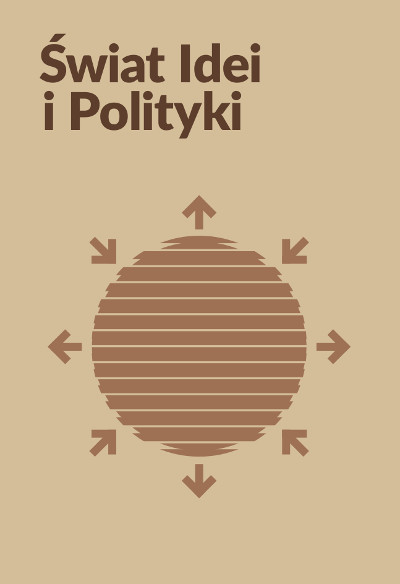Between Kremlin influence and Ukrainian independence: The presidents of Ukraine from Kravchuk to Poroshenko
DOI:
https://doi.org/10.34767/SIIP.2024.02.03Keywords:
Ukraine, Russia, president, independence, oligarchyAbstract
The article analyzes the Kremlin’s influence on the presidents of Ukraine from Leonid Kravchuk to Petro Poroshenko, highlighting the complex relations and efforts to gain independence from Russia. After the collapse of the Soviet Union, Ukraine struggled to build its independence amid strong pressures from the Kremlin. Each president had a different approach to relations with Russia. Leonid Kravchuk tried to balance cooperation with independence – an extremely challenging task for the newly formed state. Leonid Kuchma, after initially seeking to build positive relations with the West, turned significantly towards the Kremlin during his second term. His presidency was marked by corruption and the strengthening of oligarchic structures. Viktor Yushchenko, emerging from the Orange Revolution, aimed to make Ukraine independent despite internal conflicts and pressures from the Kremlin. Viktor Yanukovych strengthened ties with Moscow, leading to massive social protests during the Maidan and his eventual escape to Russia. Petro Poroshenko, who took office during a crisis, sought to strengthen Ukraine’s independence and tighten relations with the West. Despite some successes, his term was also marked by difficulties related to corruption and oligarchic structures. The current situation, a full-scale war initiated by the Russian Federation in 2022, highlights that the challenges of maintaining Ukraine’s sovereignty and territorial integrity remain relevant. The pursuit of complete independence from Russian influence remains a priority, requiring consistent actions and international support.
References
Chojnowski, A. & Bruski, J.J. (2006). Historia państw świata w XX wieku. Ukraina. Warszawa: TRIO.
Felshtinsky, J. & Stanchev, M. (2015). Trzecia wojna światowa? Bitwa o Ukrainę. Poznań: Dom Wydawniczy Rebis.
Jureńczyk, Ł. (2019). Okoliczności i postawa NATO wobec polityki militarnej Rosji na Ukrainie. Rocznik Integracji Europejskiej, 13, 115–128. DOI: http://dx.doi.org/10.14746/rie.2019.13.8
Konstytucja Ukrainy. Retrieved from: http://libr.sejm.gov.pl/tek01/txt/konst/ukraina.html [accessed: 1.07.2024].
Kowalov, I. (2009). Wpływ „czynnika rosyjskiego” na wybory prezydenckie oraz wydarzenia pomarańczowej rewolucji 2004 roku na Ukrainie. Kultury Wschodniosłowiańskie - Oblicza i Dialog, 1, 27–32.
Leusz, M. (2009). Transformacja demokratyczna współczesnej Ukrainy. Wschodnioznawstwo, 3, 135–166.
Olszański, T.A. (1994). Historia Ukrainy XX w. Warszawa: Oficyna Wydawnicza Volumen.
Serczyk, W.A. (2009). Historia Ukrainy. Wrocław: Ossolineum.
Tokarski, T., Chugaievska, S. & Chugaievska, N. (2019). Determinanty przestrzennego zróżnicowania płac na Ukrainie. Wiadomości Statystyczne, 64(5), 17–33


